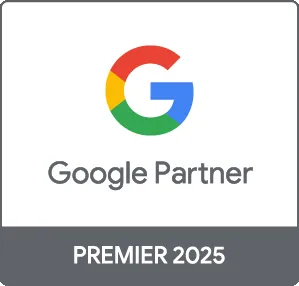Pay-per-click (PPC) advertising is a powerful digital marketing strategy that allows businesses to drive traffic to their websites through targeted ads. By investing in PPC, companies can achieve immediate visibility on search engines and generate leads quickly. In this article, we will explore various PPC advertising strategies that can enhance your campaigns and maximize your return on investment.
Understanding Pay-Per-Click Advertising
PPC involves paying a fee each time someone clicks on your ads. Unlike traditional advertising, you can measure the performance of your ads in real-time and adjust your strategy accordingly. Platforms like Google Ads and Bing Ads offer a variety of options to optimize your campaigns effectively.
1. Conduct Thorough Keyword Research
Keyword research is essential for a successful PPC campaign. By identifying relevant keywords, you can target the right audience. Consider the following tips:
- Use Keyword Tools: Leverage tools like Google Keyword Planner to find high-traffic keywords with low competition.
- Long-Tail Keywords: Focus on long-tail keywords that have a specific intent, as they often convert better.
- Negative Keywords: Utilize negative keywords to exclude terms that are irrelevant to your business, decreasing wasted ad spend.
2. Craft Compelling Ad Copy
Your ad copy plays a crucial role in attracting clicks. Make sure your ads are relevant and appealing by:
- Highlighting Unique Selling Points: Clearly communicate what sets your business apart from competitors.
- Incorporating Calls-to-Action: Use strong CTAs like 'Shop Now' or 'Get a Free Quote' to encourage clicks.
- Testing Different Versions: A/B test different headlines and descriptions to find what resonates best with your audience.
3. Optimize Landing Pages
The landing page where users arrive after clicking your ad is crucial for conversion rates. Optimize your landing pages by:
- Ensuring Relevance: Make sure your landing page aligns with your ad’s message to meet user expectations.
- Improving Load Times: Fast-loading pages reduce bounce rates and keep users engaged.
- Using Clear CTAs: Provide obvious calls-to-action, guiding users on what to do next.
4. Monitor and Adjust Your Campaigns
Regular monitoring of your PPC campaigns is vital for ongoing success. Use analytics to:
- Track Performance: Analyze key metrics such as clicks, conversions, and cost-per-click (CPC).
- Adjust Budgets: Reallocate funds from underperforming ads to those that are delivering results.
- Optimize Bids: Experiment with automated bidding strategies to maximize conversions within your budget.
5. Leverage Remarketing Strategies
Remarketing allows you to reconnect with users who have previously visited your website. This strategy can help to:
- Increase Brand Recall: Keep your brand top-of-mind for potential customers.
- Boost Conversions: Present tailored ads to users based on their previous interactions.
- Segment Audiences: Create specific ads for different segments based on their behavior.
Conclusion
Implementing effective pay-per-click advertising strategies can significantly enhance your online presence and drive targeted traffic to your website. By focusing on keyword research, compelling ad copy, landing page optimization, ongoing campaign monitoring, and remarketing, you can substantially improve your PPC ROI. At Prebo Digital, we specialize in providing comprehensive PPC and digital marketing solutions tailored to your business needs. Ready to elevate your PPC strategy? Get in touch with us today!





